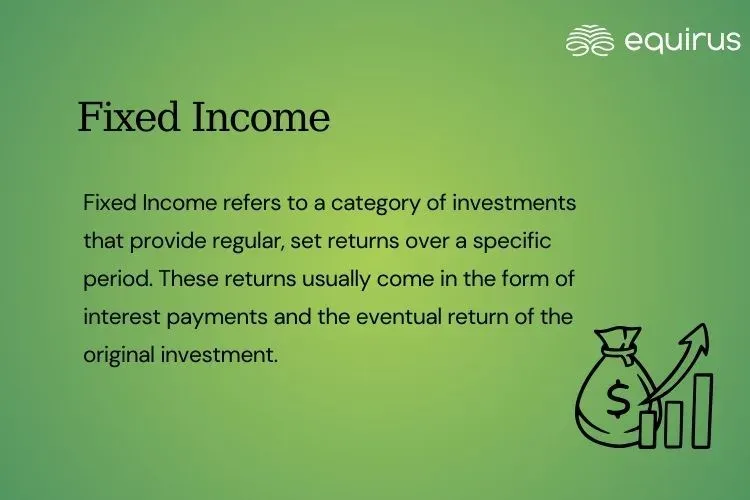Fixed Income

Key Highlights
-
Fixed Income refers to a category of investments that provide regular, set returns over a specific period.
-
Key characteristics includes predictable income, maturity date, lower risk and interest rate sensitivity.
What is Fixed Income?
Fixed Income refers to a category of investments that provide regular, set returns over a specific period. These returns usually come in the form of interest payments and the eventual return of the original investment (principal).
Fixed income is most commonly associated with bonds, but it also includes other instruments like Treasury bills, certificates of deposit (CDs), debentures, and fixed deposits.
Key Characteristics
-
Predictable Income: Investors receive fixed interest payments, typically monthly, quarterly, or annually.
-
Maturity Date: Most fixed-income securities have a set maturity date, at which point the principal is repaid.
-
Lower Risk: Compared to stocks, fixed-income investments usually carry lower risk and offer capital preservation.
-
Interest Rate Sensitivity: Prices of fixed-income securities move inversely with interest rates.
Common Types of Fixed Income Instruments
1. Government Bonds
Issued by the central or state governments to fund public spending (e.g., Indian Government Bonds, U.S. Treasury Bonds).
2. Corporate Bonds
Issued by companies to raise money for business needs. They usually offer higher returns than government bonds, but come with higher risk.
3. Municipal Bonds
Issued by local authorities or municipalities, often with tax benefits.
4. Certificates of Deposit (CDs)
Issued by banks with fixed interest rates and fixed terms.
5. Fixed Deposits (FDs)
Popular in India, these are bank products offering a fixed return over a chosen period.
Why Do People Invest in Fixed Income?
1. Capital Preservation: Ideal for conservative investors looking to protect their principal.
2. Regular Income: Great for retirees or those seeking consistent cash flow.
3. Portfolio Diversification: Helps balance the risk from stocks or equities.
4. Lower Volatility: Fixed income tends to be more stable than equity markets.
Risks Involved
Even though fixed-income investments are considered safer, they come with some risks:
-
Interest Rate Risk: If interest rates rise, bond prices usually fall.
-
Credit Risk: If the issuer defaults, the investor might not get interest or principal.
-
Inflation Risk: Returns may not keep up with inflation, reducing real income.
